Q
How much does a 2020 BMW X3 cost?
Used 2020 BMW X3 prices typically range from RM180,000 to RM250,000, depending on condition, mileage, trim level, and remaining factory warranty. The xDrive30i high-spec variant, with its 2.0T high-power engine and panoramic sunroof, usually sits closer to the upper end of that range. This midsize luxury SUV is known for its handling and practicality, coming standard with a 10.25-inch infotainment screen, wireless CarPlay, and three-zone automatic climate control. Its 2961mm wheelbase also delivers generous rear legroom, making it family-friendly. When buying, it's wise to check service records and prioritize models with BMW Premium Selection certification. These undergo a 152-point inspection and often come with an extended 5-year warranty, helping reduce long-term maintenance costs. If considering a new X3 instead, the current model features the updated ID7 system and new 48V mild hybrid tech, but expect to pay around 40% more than a used example.
Special Disclaimer: This content is published by users and does not represent the views or position of PCauto.
Related Q&A
Q
Is the 2020 BMW X3 good in snow?
The 2020 BMW X3 performs pretty impressively in the snow, and that's mostly thanks to its xDrive intelligent all-wheel-drive system. It constantly monitors road conditions and automatically distributes power between the front and rear axles, making sure the vehicle maintains solid grip on slippery or snow-covered surfaces. The model also comes with Dynamic Stability Control (DSC) and Performance Control, which further boost handling safety on icy and snowy roads. If you opt for winter tires, its snow performance gets a noticeable upgrade—winter tires' special rubber compound and tread patterns handle cold temperatures and snow much better. Even though the local climate is warm year-round, knowing how a vehicle performs in extreme conditions is still useful info, especially for folks planning road trips to cold areas or considering buying a used imported car. It's worth noting that no all-wheel-drive system works its best without the right tires; switching to season-appropriate tires is key to improving driving safety. The X3's ground clearance and body rigidity also let it handle light snow-covered roads, but you still need to drive carefully in really extreme conditions.
Q
Is the BMW X3 2020 a good car?
The 2020 BMW X3 is a well-rounded luxury midsize SUV. It comes with a 2.0-liter turbocharged engine available in different tunes, delivering 184 to 252 horsepower, paired with an 8-speed automatic transmission. The power delivery is smooth, and fuel economy is decent, making it suitable for both city driving and long road trips. The interior is well-crafted, featuring a standard 10.25-inch infotainment screen and iDrive system, which balance tech appeal with practicality. Standard driver assistance features like lane keeping assist and automatic emergency braking also enhance safety. In terms of space, rear legroom is ample, and the trunk offers 550 liters of cargo capacity, meeting family needs. On the road, it maintains BMW's classic precise steering and solid chassis tuning, striking a good balance between comfort and sportiness. It's worth noting that maintenance costs are slightly higher than mainstream brands, but BMW's official warranty policies and regular service packages help offset long-term ownership expenses. Competitors in the same class, such as the Mercedes-Benz GLC and Audi Q5, each have their own strengths, so it's advisable to test drive and compare based on personal preferences. Well-maintained 2020 X3 models hold their value well in the used car market; before purchasing, it's recommended to go through official certified channels or professional inspections to ensure vehicle condition.
Q
Does the 2025 BMW X3 require premium gas?
The 2025 BMW X3 is officially recommended to use RON 95 or higher gasoline in the Malaysian market. However, for optimal performance, it's advisable to go with RON 97 or higher premium fuel. Why? Because high-octane gasoline better suits the high compression ratio design of its turbocharged engine, reducing the risk of knocking and optimizing power delivery.
In Malaysia, gasoline grades are RON 95 and RON 97, with RON 97 being the premium option. While it does cost a bit more at the pump, it offers better combustion efficiency. Sticking with it long-term can help minimize carbon buildup and potentially extend the engine's lifespan.
Now, here's the thing: if you have to temporarily fill up with RON 95, it won't immediately damage the engine. Modern cars, including this Bimmer, are equipped with knock sensors that can automatically adjust ignition timing. But, consistently using lower-octane fuel might lead to reduced performance and increased fuel consumption over time.
For a brand like BMW, which prides itself on driving dynamics, following the manufacturer's fuel recommendations is key to keeping the vehicle performing at its peak. The good news is, RON 97 is widely available at most Malaysian petrol stations, so owners shouldn't have any trouble finding it when they need to refuel.
Q
What colors are the BMW 3 Series 2025?
The 2025 BMW 3 Series has entered the Malaysian market with a solid color palette to suit different tastes. There are timeless classic colors: Black Sapphire metallic, Alpine White solid, and Brooklyn Grey metallic. For those wanting a bit more flair, there's the eye-catching Arctic Race Blue metallic. And if you're really looking to stand out, keep an eye out for potential special finishes like matte or exclusive metallic options, BMW usually has something extra for those who want to personalize their ride.
Now, when picking your 3 Series hue here in Malaysia, personal preference obviously leads the way, but our local climate is worth a thought too. Lighter shades tend to be more practical in the heat – they are less likely to show dust and help reflect some of that harsh sunlight, which can make a difference when you step into a parked car. Darker colors, though, exude that classic, premium dignified and luxurious vibe that BMW does so well.
One thing BMW doesn't skimp on is paint quality. They use high-tech stuff like multi-layer application and nano-coatings. It's not just about making the car look stunning – these paints are tough, too. Expect good scratch resistance and corrosion protection, which is pretty handy given our frequent rain and humid conditions.
If you're still on the fence about which color to go for, it's advisable to head down to your local authorized BMW dealership. Checking out the actual color swatches or, even better, seeing the colors on a real car under different lighting is the way to go. Trust me, colors can look surprisingly different in the showroom versus outside in the sun.
Q
When did the 2025 BMW come out?
The 2025 BMW X3 hits the market on June 12, 2025. This midsize luxury SUV brings some serious heat under the hood—select models pack a 2.0T engine, mated to an 8-speed automatic transmission and all-wheel drive for that signature BMW punch. Inside, you'll find a sleek, large dual-screen setup and a panoramic starry sky sunroof that cranks up the tech vibe big time. Want the full lowdown? Keep an eye on your go-to auto news sites, check out BMW's official website, or swing by your local dealer to get behind the wheel for a test drive.
Q
What should I pay for a 2025 BMW X3?
The 2025 BMW X3 20 xDrive M Sport is estimated to start at RM 349,000 in Malaysia. That's the on-the-road (OTR) price, excluding insurance, but it does come with BMW's BSRI 5-year extended warranty and service package. Locally assembled (CKD) in Kulim, Kedah, this X3 packs a mild hybrid (MHEV) system, with the engine churning out 190 PS and 310 Nm of torque. Keep in mind, the final purchase price might vary depending on the dealership, your location, and any ongoing promotions. For the most accurate figures and detailed financing options, it's best to swing by your nearest BMW dealer.
Q
Should I buy a hybrid car in 2025?
Considering a hybrid car purchase in 2025 is definitely a decision worth serious thought, especially here in the Malaysian market. These vehicles blend the best of both worlds—combining a traditional combustion engine with an electric motor—delivering better fuel efficiency and lower emissions while sidestepping the range anxiety that still comes with full EVs, especially given our patchy charging infrastructure.
The Malaysian government has also been stepping up with incentives for energy-efficient vehicles lately, like tax breaks, which could make hybrids even more appealing. Long-term, hybrids often work out cheaper to maintain than pure petrol cars too. The electric motor takes some strain off the engine, reducing wear and tear, and battery tech has come a long way, so they’re lasting longer than ever.
That said, hybrids do tend to have a higher upfront price tag. Before you commit, it’s smart to crunch the numbers: will the fuel savings over time actually offset that initial difference?
Another plus? Malaysia’s climate and road conditions don’t really faze hybrids. They shine in stop-and-go city traffic especially, where the electric motor kicks in efficiently at low speeds. And if you’re someone who does regular long drives, the petrol engine still gives you that reliable highway power when you need it.
All in all, buying a hybrid in Malaysia in 2025 strikes a solid balance between being eco-friendly and budget-conscious. But whether it’s the right fit for you? That depends on your personal finances, how you drive, and how easy (or not) charging would be for you. Worth weighing up!
Q
Will the 2025 BMW X3 be bigger?
BMW hasn't officially released the exact dimensions for the 2025 X3 just yet, but looking at how BMW's been updating their models lately, it's a safe bet the new X3 will see a slight bump in size. The goal here is probably to free up more space inside for a comfier ride, all while keeping that sporty handling feel that makes BMWs so enjoyable to drive. For Malaysian buyers, a roomier X3 would be a big plus for family use—more legroom in the back and a bigger boot would definitely align better with what local folks want from a versatile SUV.
As a top player in the midsize luxury SUV game, the X3 typically gets a solid tech and powertrain upgrade with each new generation. The 2025 model? I'd expect to see more efficient mild-hybrid or plug-in hybrid options under the hood, without losing that signature BMW driving dynamics we all know. Malaysia's hunger for luxury SUVs isn't slowing down, so tweaking the X3's size and kit should only make it more competitive. But hey, take all this with a grain of salt until BMW spills the official details—your best bet is to keep an eye on your local dealership for the latest scoop.
Q
Is BMW reliable in 2025?
Based on the latest 2025 industry reviews and owner feedback, BMW has demonstrated solid reliability, with its new-generation models like the 3 Series, 5 Series, and X-Series SUVs all built on the modular CLAR platform and upgraded B-Series turbo engines. These improvements have reduced failure rates while optimizing fuel efficiency. Notably, the cooling systems and electronic components have been locally adapted to better handle Malaysia's tropical climate, enhancing overall stability. It's worth mentioning that BMW Malaysia now offers a 5-year unlimited mileage warranty and complimentary regular maintenance package for 2025 models—a clear vote of confidence in the brand's reliability. For Malaysian buyers, prioritizing models equipped with the 48V mild-hybrid system makes sense; this powertrain setup reduces wear on the start-stop system during Kuala Lumpur's heavy traffic, offering long-term benefits. When stacked against rival German luxury brands, BMW still holds the edge in handling dynamics and iDrive 9.0's user-friendly interface. However, we recommend a test drive to assess how the chassis handles local road conditions, especially for drivers frequently navigating B-roads.
Q
What is the update for the BMW 3 Series 2025?
As a mid-cycle refresh, the 2025 BMW 3 Series focuses on sharpening up the exterior details and upping its tech game. The front end gets a more aggressive look, with those LED headlights now boasting a sleeker, more futuristic design. They're also throwing in some new exterior color options to keep things fresh. Inside, BMW's signature attention to detail and premium materials remain, but the big news is the updated iDrive system on the central display, bringing smarter voice control and wireless Apple CarPlay into the mix. Under the hood, expect the familiar 2.0T and 3.0T engines to carry over, though BMW's likely tweaked the tuning for better fuel efficiency. The plug-in hybrid variant might also see a bump in its all-electric range, which is always a plus. For Malaysian buyers, the 2025 3er should hold onto that legendary driving fun while being better suited to our hot climate – think more efficient air conditioning and better UV-blocking glass. It's worth remembering that the 3 Series has always held strong resale value here, and this update should only solidify its position as a top contender in the premium midsize sedan segment. If you're keen, keep an eye on your local dealerships for pre-order info – you won't want to miss being among the first to get behind the wheel of this sporty, tech-packed luxury ride.
Latest Q&A
Q
Is the 2020 BMW X3 good in snow?
The 2020 BMW X3 performs pretty impressively in the snow, and that's mostly thanks to its xDrive intelligent all-wheel-drive system. It constantly monitors road conditions and automatically distributes power between the front and rear axles, making sure the vehicle maintains solid grip on slippery or snow-covered surfaces. The model also comes with Dynamic Stability Control (DSC) and Performance Control, which further boost handling safety on icy and snowy roads. If you opt for winter tires, its snow performance gets a noticeable upgrade—winter tires' special rubber compound and tread patterns handle cold temperatures and snow much better. Even though the local climate is warm year-round, knowing how a vehicle performs in extreme conditions is still useful info, especially for folks planning road trips to cold areas or considering buying a used imported car. It's worth noting that no all-wheel-drive system works its best without the right tires; switching to season-appropriate tires is key to improving driving safety. The X3's ground clearance and body rigidity also let it handle light snow-covered roads, but you still need to drive carefully in really extreme conditions.
Q
Is the BMW X3 2020 a good car?
The 2020 BMW X3 is a well-rounded luxury midsize SUV. It comes with a 2.0-liter turbocharged engine available in different tunes, delivering 184 to 252 horsepower, paired with an 8-speed automatic transmission. The power delivery is smooth, and fuel economy is decent, making it suitable for both city driving and long road trips. The interior is well-crafted, featuring a standard 10.25-inch infotainment screen and iDrive system, which balance tech appeal with practicality. Standard driver assistance features like lane keeping assist and automatic emergency braking also enhance safety. In terms of space, rear legroom is ample, and the trunk offers 550 liters of cargo capacity, meeting family needs. On the road, it maintains BMW's classic precise steering and solid chassis tuning, striking a good balance between comfort and sportiness. It's worth noting that maintenance costs are slightly higher than mainstream brands, but BMW's official warranty policies and regular service packages help offset long-term ownership expenses. Competitors in the same class, such as the Mercedes-Benz GLC and Audi Q5, each have their own strengths, so it's advisable to test drive and compare based on personal preferences. Well-maintained 2020 X3 models hold their value well in the used car market; before purchasing, it's recommended to go through official certified channels or professional inspections to ensure vehicle condition.
Q
What is the safety rating of the Toyota Corolla 2021?
The 2021 Toyota Corolla excels in safety performance and has earned recognition from several international authoritative bodies. For instance, it achieved a five-star rating in Euro NCAP testing and was named a "Top Safety Pick" in IIHS crash tests in the United States. This model comes standard with the Toyota Safety Sense 2.0 active safety system, which includes features like a pre-collision system, lane departure alert, adaptive cruise control, and automatic high beams, providing comprehensive safety protection for drivers. In addition, the Corolla's body structure uses high-strength steel, effectively enhancing its impact resistance, and it is equipped with multiple airbags to further ensure passenger safety. For consumers considering purchasing this car, its safety performance is an important plus. Similar safety configurations in competing models are gradually becoming industry standards, indicating that automakers are placing increasing importance on safety performance. Consumers can pay more attention to these details when choosing a vehicle to ensure the driving safety of themselves and their families.
Q
Is the 2021 Corolla a good first car?
The 2021 Corolla makes a solid first car. It’s reliable, gets good gas mileage, and is super easy for new drivers to handle. Under the hood, you’ve got either a 1.8L or 2.0L naturally aspirated engine—smooth and built to last—paired with a CVT transmission that makes daily commuting a breeze while keeping fuel costs down. It also comes standard with Toyota Safety Sense, which includes pre-collision warning, lane keep assist, and adaptive cruise control—all stuff that really helps boost safety on the road. The interior is simple and functional, with decent space that works well for small families or singles. Maintenance costs are pretty reasonable too, and parts are easy to find, so owning it long-term is low-stress. If you want a bit more pep, the 2.0L version has quicker acceleration. It holds its value better than most in its class too, so you won’t take as big a hit when it’s time to trade up. Compared to other compact cars out there, it’s just really well-rounded—no major weaknesses. All in all, it’s a really safe bet for an entry-level ride.
Q
What kind of engine does the 2021 Corolla have?
The 2021 Corolla offers a range of engine options depending on the trim and configuration. The most common ones are the 1.8-liter and 2.0-liter four-cylinder naturally aspirated engines. The 1.8L puts out 139 horsepower, paired with a CVT transmission, and it's all about being economical and practical—perfect for daily commuting. Then there's the 2.0L, which cranks out 169 horsepower, delivering better performance for folks who want a more engaging driving experience. Some markets also get a 1.8L hybrid version that combines a gas engine with an electric motor for even better fuel economy.
Tech-wise, all these engines feature Dual VVT-i variable valve timing, which helps optimize fuel efficiency and power delivery. They're also known for being pretty reliable and durable, with relatively low maintenance costs. If you're thinking about buying a Corolla, pick the powertrain that fits your budget and needs. The 1.8L is great if saving gas is your top priority, the 2.0L suits drivers after more zip, and the hybrid can cut down on fuel costs even more over the long haul.
View MoreRelated News
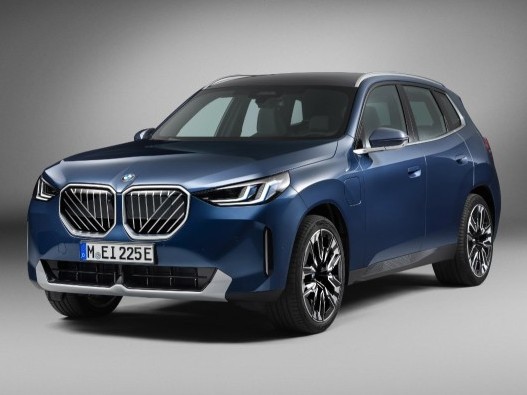
BMW X3 Review: Agile Handling Delivers Pure Driving Joy
AshleyMay 8, 2025
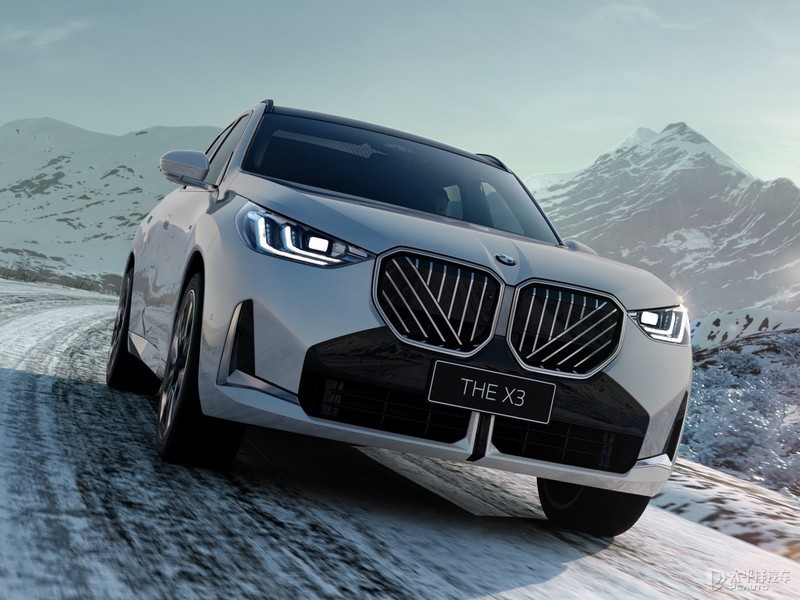
The wheelbase extended by 110mm, the all-new BMW X3 L is ready for production in China! Review the history of BMW X3!
AshleyAug 8, 2024
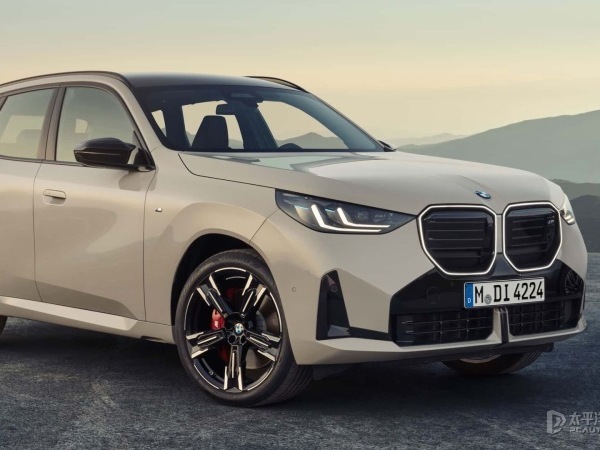
2025 BMW X3 (G45) will premiere at the end of the year, can it land in Malaysia next year?
LienJul 2, 2024
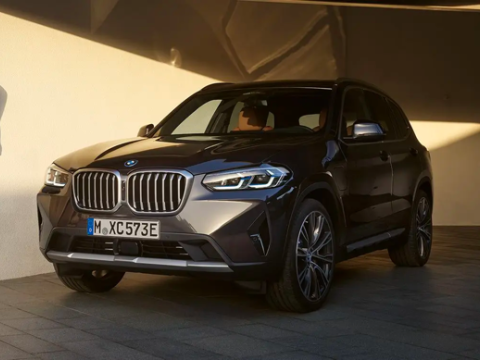
The 2024 BMW X3 Final Edition is priced from RM 338,500, is it the farewell masterpiece of the third generation X3?
LienJun 25, 2024
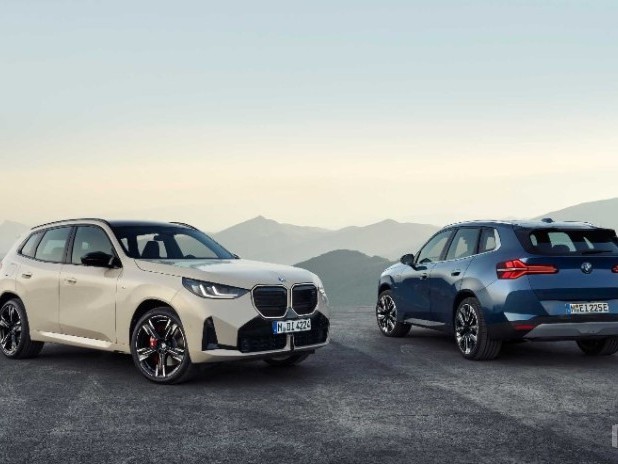
A New Member Added to the BMW X3 Family! The Fourth Generation Model Officially Debuts
AshleyJun 19, 2024
View More












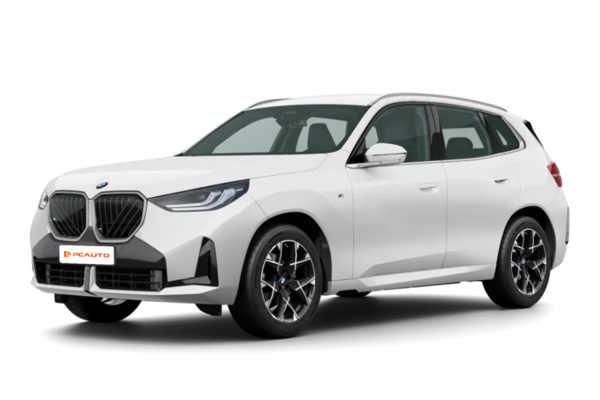



Pros
Cons